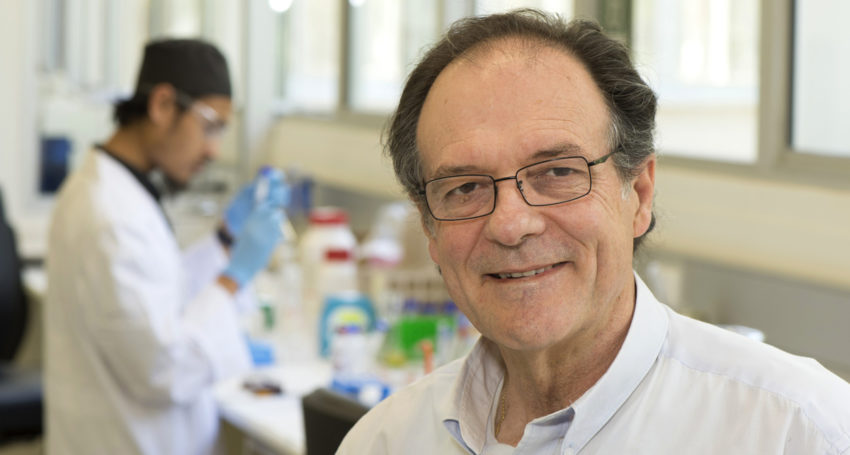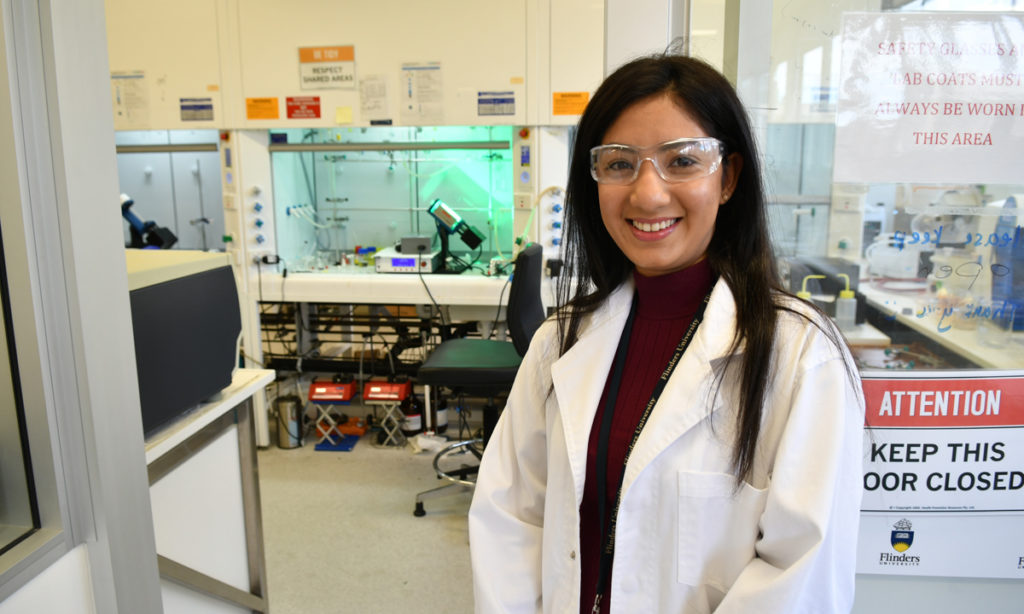Egg-unboiling machine takes on fish oil
Health & Medical
The technology that unboiled the egg is being used to help improve people’s capacity to absorb fish oil.

Sign up to receive notifications about new stories in this category.
Thank you for subscribing to story notifications.

The discovery is the latest in a growing number of breakthroughs across the globe using the Vortex Fluidic Device (VFD).
Invented by Professor Colin Raston and his team at Flinders University in South Australia, the VFD has been hailed a game-changer for applications across the sciences due to its ability to develop a range of novel nano materials without the use of hash or toxic chemicals in the manufacturing process.
Applications have ranged from protein folding, graphene production, biofuel conversion, slicing carbon nanotubes and drug delivery.
Flinders Institute for NanoScale Science and Technology researcher Nikita Joseph said the most recent trial to enhance fish oil processing had opened new possibilities for the device.
“Using the Vortex Fluidic Device can encapsulate fish oil with a simpler process than is conventionally used,” Joseph said.
“There is a possibility to produce smaller particles through this method, which may enhance people’s absorption of the fish oil.
“Through this processing, we aim to improve the n omega-3 fatty acids from fish oil. This is important in processing new formulations for the food industry with improved health benefits.”

Flinders University researcher Nikita Joseph is working on new applications for the VFD.
The researchers found that the VFD can simplify water-in-oil-in-water encapsulation into one process, allowing scientists to exercise control over the particle size.
They also found that by altering the rotational speed, tilt angle, concentrations and ratio of components, temperature and flow rates of the VFD, they were able to vary their choice of phospholipids and combinations, changing the nature of the fish oil.
Professor Raston said the small particle fish oil was only one example of the potential VFDs offered.
“We have only scratched the surface about what is possible for this device,” he said.
In 2015, the South Australian university researchers were awarded an Ig Nobel Award for creating the VFD and using it to unboil an egg.
There are now 30 VFDs across the globe with more being manufactured by 2D Fuidics Pty Ltd, a company owned equally by Flinders University and First Graphene.
While the device is being used in countries including the UK and China for food processing, nutraceticals, cosmetics and pharmaceuticals, Professor Raston said he would particularly like to see VFDs used to target drug delivery and reduce the side effects of medications.
“I’m very passionate about that because… (it’s) not only reducing side effects, or even eliminating side effects, but most drugs that we take end up in sewage because the body only uses a small amount,” he said.
“For every kilogram of drug that you buy over the counter you’ve got to imagine there’s half a ton of waste sitting on the planet somewhere that went into making it.
“And so working out ways of making the drug molecules themselves without generating the waste is also a big ticket item for the VFD.”
Jump to next article



